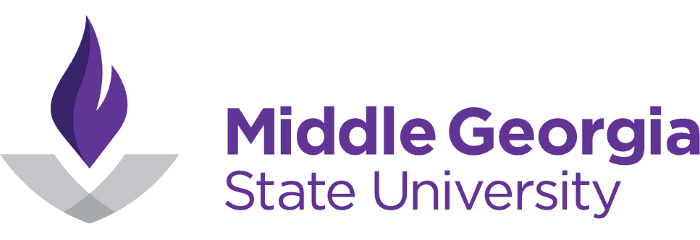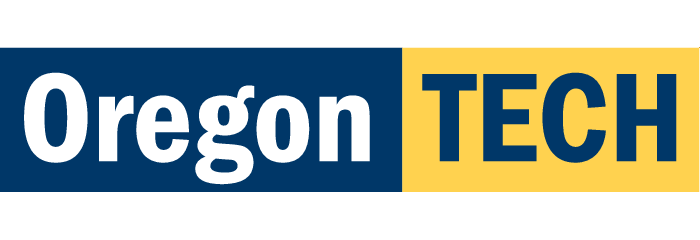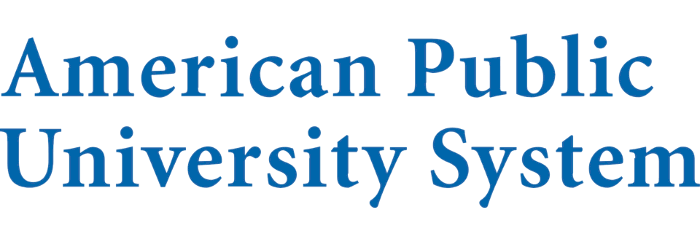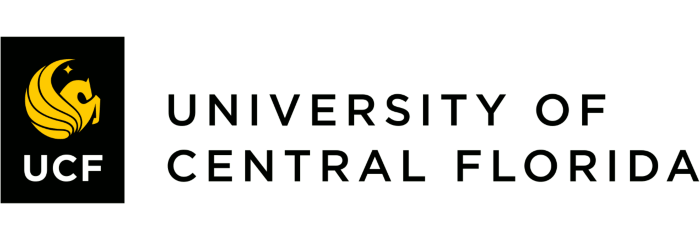
Advance your career with an affordable online bachelor's in health informatics, blending healthcare and technology to improve patient outcomes. These programs focus on health data management, policy design, and information systems, equipping you with the expertise to streamline healthcare operations. You'll gain critical skills in data analysis, database management, and regulatory compliance.
Key Takeaways:
- Middle Georgia State University has the most affordable health informatics bachelor's online, with annual tuition at $5,220.
- Southern New Hampshire University UUֱ�� excels in online enrollment with 135,584 students, placing it at the top 1% of most popular online schools.
We identify the most affordable online degrees, ensuring accuracy through a manual tuition review. Every listed school holds institutional accreditation and provides fully online programs with clear pricing. Learn more in our methodology.
2025 Most Affordable Online Healthcare Informatics Degrees
| Rank | School | Location | Annual Tuition |
|---|---|---|---|
| Middle Georgia State University | Macon (GA) | $5,220 | |
| Southeast Missouri State University | Cape Girardeau (MO) | $8,576 | |
| University of Arkansas Grantham | Kansas City (KS) | $9,150 | |
| Oregon Institute of Technology | Klamath Falls (OR) | $9,660 | |
| Southern New Hampshire University Online | Manchester (NH) | $9,900 | |
| American Public University System | Charles Town (WV) | $10,500 | |
| Liberty University | Lynchburg (VA) | $11,700 | |
| Mercer University | Macon (GA) | $16,320 | |
| University of Central Florida | Orlando (FL) (and 7 others) | $19,024 | |
| Texas Woman's University | Denton (TX) | $19,440 | |
| University of North Georgia | Dahlonega (GA) | $20,730 | |
| University of Southern Indiana | Evansville (IN) | $21,816 | |
| University of South Carolina-Upstate | Spartanburg (SC) | $22,710 | |
| Davenport University | Grand Rapids (MI) | $29,220 |
ADVERTISEMENT
Online Healthcare Informatics Bachelor's Degrees You May Be Interested In
Overview of Online Healthcare Informatics Bachelor's Degrees
An online bachelor's in healthcare informatics prepares students for careers working with and analyzing data in a healthcare setting. Students will learn to harness the power of data to improve operations in healthcare facilities,
Some programs offer specializations to help students fine-tune their degree to fit their personal and professional interests. While healthcare informatics is somewhat specialized on its own, students might be able to focus on specific areas. For instance, there are online healthcare administration degrees as well as online healthcare management degrees. Some online degree programs may also include an internship or capstone project, where you'll have the opportunity to apply what you've learned in a real-world setting.
Students with bachelor's degrees in healthcare informatics can pursue a variety of careers in the industry, including jobs in health information management, clinical data analytics, health IT project management, and informatics consulting.
Already have a bachelor's degree? See our list of the best online master's degrees in healthcare informatics to advance your career in the industry.
Common Courses
In addition to general undergraduate requirements such as English, math, science, and social sciences, students will take a core set of classes in healthcare informatics to give them a strong foundation in how professionals use data in the healthcare setting. Classes will cover healthcare data, information technology, regulations and compliance with laws about health data, management in a healthcare setting, and analytics. Common courses for healthcare analytics majors include research and data analysis in healthcare, management in healthcare organizations, law and ethics for healthcare professionals, and biostatistics.
Funding an Online Healthcare Informatics Degree
How much your degree will cost is one of the biggest factors in making decisions about higher education. While the high price tag at many colleges and universities can make a degree seem out of reach, most students use financial aid to help lower the cost. Financial aid includes gift aid, such as grants and scholarships, as well as student loans.
The first step in applying for aid is to fill out the Free Application for Federal Student Aid, or the FAFSA. When you fill out the FAFSA, the federal government sends your financial information to the colleges you're interested in. Once you've applied to each school and are accepted, they will send you a financial aid offer with any federal grants, scholarships, and information on student loans if you qualify for them. Your financial aid offers can help you decide where to go to school and understand how much it might cost you.
Financial Aid
Grants and scholarships are often seen as the best financial aid options because they don't need to be repaid. Grants and scholarships might come from the federal government, your state, or your school. You can also apply for more scholarships from outside sources, such as nonprofits or businesses. The federal work-study program is another option for students who want to get a part-time job while they study.
Some students might also qualify for employer-funded tuition assistance programs through their work. These programs are offered by many companies, including Target and T-Mobile, to help employees pay for a college degree.
After gift aid options are exhausted, many students use loans to help bridge the gap. Federal student loans are generally seen as a better option over private loans because they offer benefits such as fixed interest rates and a variety of repayment options, including income-driven repayment plans. Private loans also do not qualify for any federal loan forgiveness programs.
Need to borrow money to pay for school? Our student loan guide can help you borrow responsibly and keep your debt low.
What Can You Do With an Online Healthcare Informatics Degree?
A bachelor's degree in healthcare informatics can open the door to career opportunities in a variety of healthcare settings. This degree blends healthcare and information technology to train professionals who can effectively manage, analyze, and use patient data for better healthcare outcomes. Below are some potential career paths you can pursue, with career data from the Bureau of Labor Statistics (BLS):
Health Information Technologists and Medical Registrars
work with healthcare organizations to help them implement digital healthcare systems and analyze health data. They might be involved in designing, implementing, and optimizing health information systems and clinical databases. They also may use patient data to improve the quality of care.
Health Informatics Specialists
Informatics specialists work in different healthcare facilities to develop and manage digital healthcare systems. are a type of computer systems analysts that use their skills in computer and information science alongside knowledge of healthcare and nursing to effectively manage health data and use it to improve health services.
Health Information Managers
With a bachelor's degree and a few years of experience in the industry, healthcare informatics professionals can often move into management positions. are in charge of patient records and focus on maintaining and ensuring the accuracy, security, and privacy of sensitive health information.
FAQs About Online Healthcare Informatics Degrees
How Do I Choose a Bachelor's in Healthcare Informatics?
When choosing an online bachelor's in healthcare informatics, there are a few factors to keep in mind. Students should look for a program that will help them meet their professional goals, whether that's a degree that focuses more on management or emphasizes informatics and computer science skills. They should also choose an accredited college with a good reputation. Accreditation is one of the most important things to look for when choosing an online school because it means the school is regularly evaluated by an accreditation organization to make sure it meets academic standards. Other things to think about include tuition, financial aid opportunities, alumni outcomes, and online program format.
What Are the Admission Requirements for Healthcare Informatics Degrees?
While it varies depending on the school, some of the most common admissions requirements for bachelor's programs include a high school diploma or GED and high school transcripts. Some colleges require students to have a certain GPA in high school or standardized test scores from the SATs or ACTs, although this is less often required for online programs. Other application materials might include a personal statement or application essay and letters of recommendation.
Is a Healthcare Informatics Degree Worth the Cost?
Whether or not a healthcare informatics degree will be worth the cost depends on how much the degree costs, personal and professional career goals, and what kind of salary and career outcomes students can expect after graduation. In general, jobs in healthcare informatics management tend to net high salaries compared to other careers available to those with just a bachelor's degree. While it may take a few years to see this higher payoff, students who are interested in the field will likely have opportunities to boost their salary and advance their career if they choose to pursue them. Students can maximize their return on investment by saving money in college and keeping the cost of their degree low. Choosing an affordable online college or one that offers good financial aid opportunities can help lower the cost of college. Attending online also makes it easier to work while in school, which helps reduce income lost during college.
Student Reviews of Online Healthcare Informatics Programs
Snhu is the best college! My advisor is amazing and the university offers so much support!! I attended classes online and the curriculum is easy to understand. The majority of my instructors have been great and very helpful! I would encourage anyone to enroll today!
Review Date: 4/21/2023
Would Recommend: Yes
Helpful for Career: No
I've Been reading quite a few bad reviews, I'm a new student and although i have not started any courses yet I can say the enrollment process has been very pleasing. I am going to be attending as an out of state Distance Learner so I expected it to be a lot of back and forth and confusing but I am very pleased with my counselor and how attentive he is with any questions I have. now as far as how to manage the online system the tutorials and videos have made things very clear and I feel there are... Read More
Review Date: 8/9/2019
Would Recommend: Yes
Helpful for Career: No
When I was first considering enrolling WGU, this is one of the first websites I visited to read what other students had experienced and from the mixed reviews I was hesitant. So I wanted to share my experience for anyone who might be considering WGU. This school is for professionals with experience either in the field they are wanting a degree in, or experience in a closely related field. The class work is challenging and you will be taking a variety of courses which entail anything from having to... Read More
Review Date: 6/5/2019
Would Recommend: Yes
Helpful for Career: No
Being a student at DeVry University has been really an awesome experience. I still have sometime to go, but hard work and determination is the key to success. Devry has offered professional professor's and the curriculum is strict but a good source for a top education.
Review Date: 6/25/2019
Would Recommend: Yes
Helpful for Career: No
The program is labeled as Health Informatics but the focus is Health Informatics and Information Management. Most of the time things run smooth. My issue is the school does not back or support you as a student at all. They have your money so they don't care. The PPE process is a nightmare. You do all the work calling around finding places. The contract gets bounced back and fourth and they don't assist in speeding the process. Mine took almost a year. Schedule got set and when I started with the... Read More
Review Date: 9/28/2018
Would Recommend: No
Helpful for Career: No
I have been a nurse for a very long time and had no tech experience when beginning this degree. I will also say I am a mature student at 50 years old when I graduated. I have an associate degree in nursing obtained in 1992 after a two year technical nursing program in the Army that allowed me to become a licensed practical nurse. I opted to go to Wgu for the healthcare informatics program because I felt that it gave a very balanced and thorough coverage of the technology and business side of things.... Read More
Review Date: 9/22/2016
Would Recommend: Yes
Helpful for Career: Yes
I don't think any degree program is perfect. But I have learned a tremendous amount of real-world knowledge related to informatics. My mentor has been very receptive, and the same is true for the course mentors. There have a been a couple of classes that could have been presented in a more effective manner, but overall I am very pleased.
Review Date: 10/24/2015
Would Recommend: Yes
Helpful for Career: Yes
The staff and instructors at the school are helpful in assisting with all challenges that occur during registration, applying for financial aid, technical issues if taking online classes, networking, and etc. The instructors work very hard to engage the online student in the program. Site visits, internships, team projects, and practicums are the best working and networking experiences. The online program is structured, very hard work, but well worth the challenges.
Review Date: 1/24/2015
Would Recommend: Yes
Helpful for Career: No
I love this school, and their education that this has to offer. It is great for women who has a busy schedule, not only working but I'm also a mother of four , full time student, and helping my mother with her apartment complex . This university is very flexible, and the professors work with their students.
Review Date: 8/27/2015
Would Recommend: Yes
Helpful for Career: Yes
Maybe I see things a little different than some that's on here. This school is NOT for everyone. They do not hold your hand. They are not going to baby you into doing what you have invested your money (or loan) to do. I think it works for those who work and have other obligations that interfere with being in a brick and mortar. I have a great student mentor and course mentors. The forums are a big help as well. Not once have I encountered a situation where I was not able to speak to any mentors.... Read More
Review Date: 10/11/2013
Would Recommend: Yes
Helpful for Career: No
My undergraduate degree taught me a lot at Temple University. With an undergraduate degree in health information systems, I feel as though I am knowledgeable on all of the background information of a hospital and how to properly run a healthcare facility. With this information, I plan to attend graduate school to obtain a master's degree in Speech Language Pathology and hope to one day open up my own rehabilitation facility. The knowledge and skills that I graduate with will help me in this process.... Read More
Review Date: 4/20/2017
Would Recommend: Yes
Helpful for Career: Yes
The Health Systems Management program at Loyola University Chicago is honestly really great. Rumored to have the nicest professors on campus, I learned a lot from these healthcare professionals who were very experienced in various healthcare professions such as nursing, healthcare law, healthcare quality, and project management. We were provided with many networking opportunities as we frequently had outside healthcare professionals come speak to us. The curriculum requires students to be introduced... Read More
Review Date: 2/21/2017
Would Recommend: Yes
Helpful for Career: Yes
My program was insightful and my degree very helpful. I think that just like with any other program or degree it is what you make it. You have to be willing to work hard and figure out what it is you want to do and how to use your degree to get you there.
Review Date: 7/13/2014
Would Recommend: Yes
Helpful for Career: Yes















